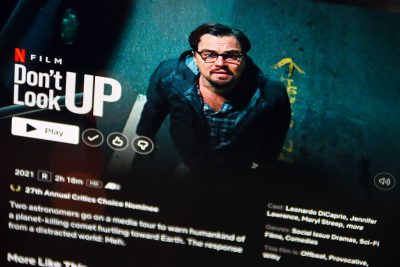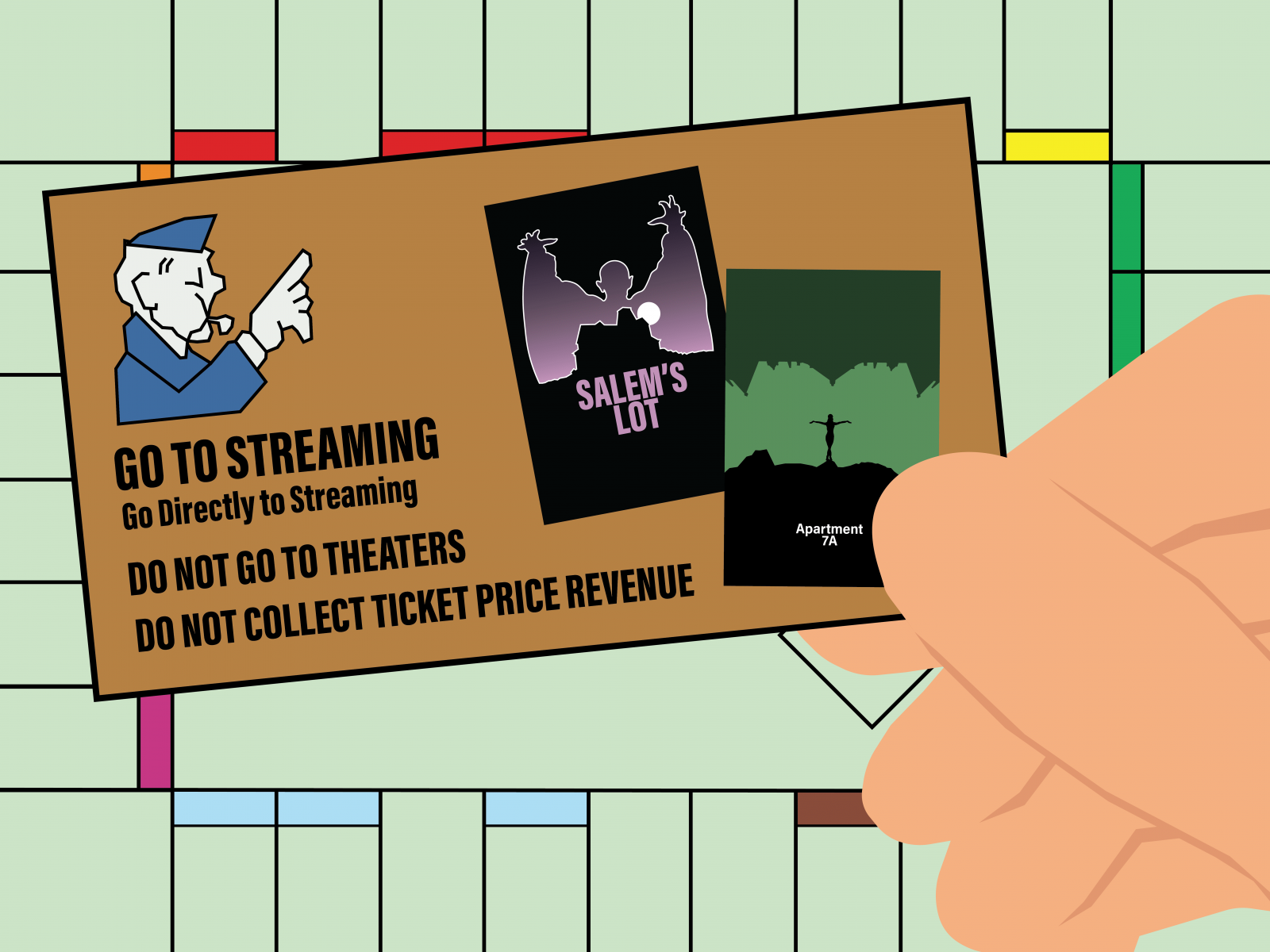With every change in season comes a new wave of climate anxiety — a psychological distress caused by the climate crisis.
It’s said to be especially prevalent in young people because of their role in adding to the problem. This winter, I made it my own personal goal to confront my own climate anxieties by learning more about it in the way I knew best. So here are five books, shows and movies I recommend to help recognize the reasons behind climate anxiety, and effectively cope with it.

Don’t Look Up
Directed by Adam McKay, Netflix’s recent star-studded release came at a perfect time. “Don’t Look Up” is a satire piece that highlights the urgency of the climate crisis. Jennifer Lawrence stars as Kate Dibiasky, a Michigan State PhD candidate who discovers a comet is heading towards Earth and is expected to wipe out the planet’s entire population. Despite confirmation and support from her adviser, Dr. Randall Mindy, played by Leonardo DiCaprio, their attempts to convince President Janie Orlean to spread the news fails as the government stays frustratingly in denial. Dibiasky and Mindy’s continuous campaign to “Just Look Up” are constantly disregarded.
The combination of an A-list cast — including Meryl Streep, Cate Blanchett and Timothée Chalamet — plus a light, satirical script calls attention to the trivialization of the climate crisis. The terrifying ignorance of the government, media and citizens does not at all feel like an exaggeration, but rather, an inevitable, tragic reality. This makes the movie a distinctive statement for viewers and a warning against the world’s current situation.
UnF**k It
“UnF** It” is YouTube’s collaborative documentary series made up of four central shows — “Seat at the Table,” “Shut It Off ASAP,” “Brave Mission” and “SiGNALS.”
“Seat at the Table” takes activist and YouTuber, Jack Harries, on a 100-day trip across the United Kingdom to speak with the overlooked younger voices affected by climate change.
“Shut It Off ASAP” documents the efforts of “AsapSCIENCE” — a YouTube channel created by queer couple Mitchell Moffit and Gregory Brown — to live off the grid. The two experiment with niche yet climate-friendly science projects to help attain a more sustainable lifestyle.
Mark Vins from the channel “Brave Wilderness” stars in “Brave Mission,” a show documenting the conservation efforts needed to protect habitats and wildlife and other aspects of society that have been negatively impacted by climate change.
“SiGNALS” is a comedy series exploring everyday objects and their environmental footprint, with a focus on plastic and trash, with narration by YouTuber Bretman Rock.
In a time where finding the solution to the climate crisis may seem overwhelming and hopeless, YouTube offers an easy-to-watch campaign that is both entertaining and solution-oriented. By presenting both interesting research and innovative ideas, “UnF**k It” is an appealing call for younger voices to be heard and join in on the action to save their future.
The Silent Sea
Set on a post-apocalyptic Earth, the world is suffering from the lack of resources, specifically clean water. As people line up for water rations based on a social grading system, South Korea’s Space and Aeronautics Administration organizes an unlikely team for a secret mission to find the precious resource. At its center is scientist Dr. Song Ji-an. She is hesitant about the mission until she realizes she would travel to Balhae Lunar Research Center — the location where her sister died five years ago due to a radiation leak. On the moon, the team is faced with a mystery that could potentially save or destroy the world.
South Korea’s success with Netflix last year concluded with “The Silent Sea”, a compelling story that lingers between an unimaginable yet potentially realistic future. The show’s focus on the social implications of climate change is also striking with its images of families groveling for water rations and dried out oceans. Its sci-fi elements and theme of climate change is a challenge that South Korea tackles with confidence and beauty.
The Hungry Tide
“The Hungry Tide” is the award-winning 2004 novel by Amitav Ghosh. It tells the story of an American marine biologist, Piya Roy, who is living on the coast of India and sets off to study dolphins. She and the rest of the people on the Bay of Bengal are affected by tiger attacks and tidal floods, making life dangerous. Ghosh’s cinematic story is historically based on the Marichjhapi massacre — the forced eviction of Bangladeshi refugees in 1979.
The novel uses beautiful storytelling to describe the tidal environment and its inhabitants, exploring themes of environmentalism and the struggle to save animals, people and the economy. Ghosh is inspired by his own Indian ancestry to bring attention to a forgotten part of both climate change and India’s social history.
Eating Our Way to Extinction
The 2021 documentary narrated by Kate Winslet informs viewers about the planet’s resource issues, focusing mainly on the impact that animal agriculture has on the environment. With the help of diverse world-leading scientists, the documentary successfully makes good use of its high production value to pressure its viewers into reexamining and changing food farming policies, while also highlighting alternate plant-based, organic dietary patterns — a necessity to prevent extinction and global warming. “Eating Our Way to Extinction” is another wake-up call to realize the impact of our meals and the connection to our planet, our health and the other inhabitants of Earth. With undeniable evidence and stunning shots of damaged nature, the documentary lays out an argument for animal liberation to stop environmental destruction.






















































































































